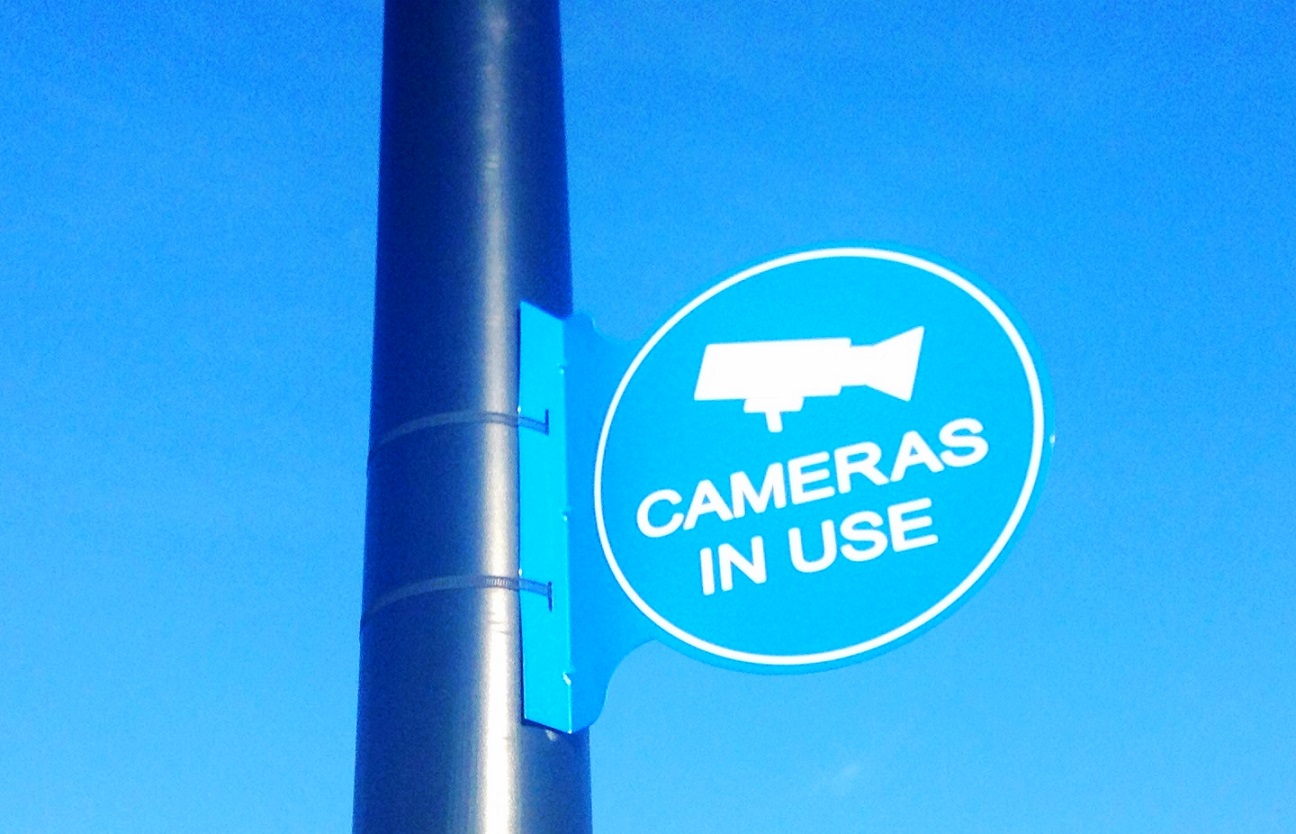2016 has been a rollercoaster year for privacy and surveillance technology.
Now the ACLU is launching Community Control Over Police Surveillance, a project to bring transparency and community control to how local law enforcement uses surveillance technology. Eleven cities are involved and D.C. is one of them.
Not everyone thinks it’s the right move, though.
But first: What does this mean for D.C. residents?
The ACLU’s Advocacy and Policy Council in New York, Chad Marlow, told us D.C. residents can expect two things from the effort.
First, the ACLU aims to get local legislation passed that increases transparency around surveillance technology used by the Metropolitan Police Department.
“We want to move the decision-making process on the funding, acquisition and use of surveillance away from the Police Department and into the hands of City Council,” Marlow told us via phone.
D.C.’s ACLU chapter, known as the ACLU of the Nation’s Capital, will work with D.C. Councilmember David Grosso, who describes himself as a “strong advocate for government transparency and civil and human rights.” Together they hope to get Council more control over the acquisition and use of surveillance technology.
A Council spokesperson did, however, make a point to tell us in an email that Community Control Over Police Surveillance is not a Council initiative, but an ACLU project.
The second thing D.C. residents can expect from Community Control Over Police Surveillance is more say in the conversation. One of the guiding principles of the program is that “local communities should play a significant and meaningful role in determining if and how surveillance technologies are funded, acquired or used.”
Marlow was especially excited about involving local communities.
“For the first time, we can force a public debate on these issues,” he said.
He told us the ACLU plans to create forums for to engage communities, especially communities of color, with Council and the police.
On the other side of the issue is justice technology expert David McClure, a research associate at D.C. think tank Urban Institute and a resident of Fairfax. He shared his concerns about the program.
“The first thing to understand is that this can be really complicated,” McClure explained. “And the details matters a lot.”
McClure said that Community Control Over Police Surveillance is an “important step” but argued that if people aren’t data literate they can be led to believe the worst of the police.
“In most cases [surveillance technologies] are being used for very deliberate and appropriate purposes and not intentionally being used for anything malicious,” he told us.
For McClure, there’s also concern about police’s ability to do their job if their tools are made too public because “some of this tech has to be secret to work.”
McClure explained that without more knowledge on the tech, people won’t understand the trade-off at stake: “Who has to be transparent? And who gets to be private?”
The Metropolitan Police Department was not immediately available for comment.
The ACLU believes law enforcement has to be transparent, and D.C. residents are entitled to privacy. When Marlow described Community Control Over Police Surveillance’s goal to increase transparency, he said it was a matter of “moving from the dark to the light.”
The Community Control Over Police Surveillance effort is a continuation of the ACLU’s ongoing privacy advocacy, #TakeCTRL, which helped pass a variety of pro-privacy state legislation earlier this year.
Join our growing Slack community
Join 5,000 tech professionals and entrepreneurs in our community Slack today!
Donate to the Journalism Fund
Your support powers our independent journalism. Unlike most business-media outlets, we don’t have a paywall. Instead, we count on your personal and organizational contributions.

Traditional PPE isn’t made for everyone. Here’s how one startup is fixing it.

The reversible power test: Free speech and the DEI backlash

Mayor Bowser: Tech can help DC build a stronger, more self-sufficient economy

